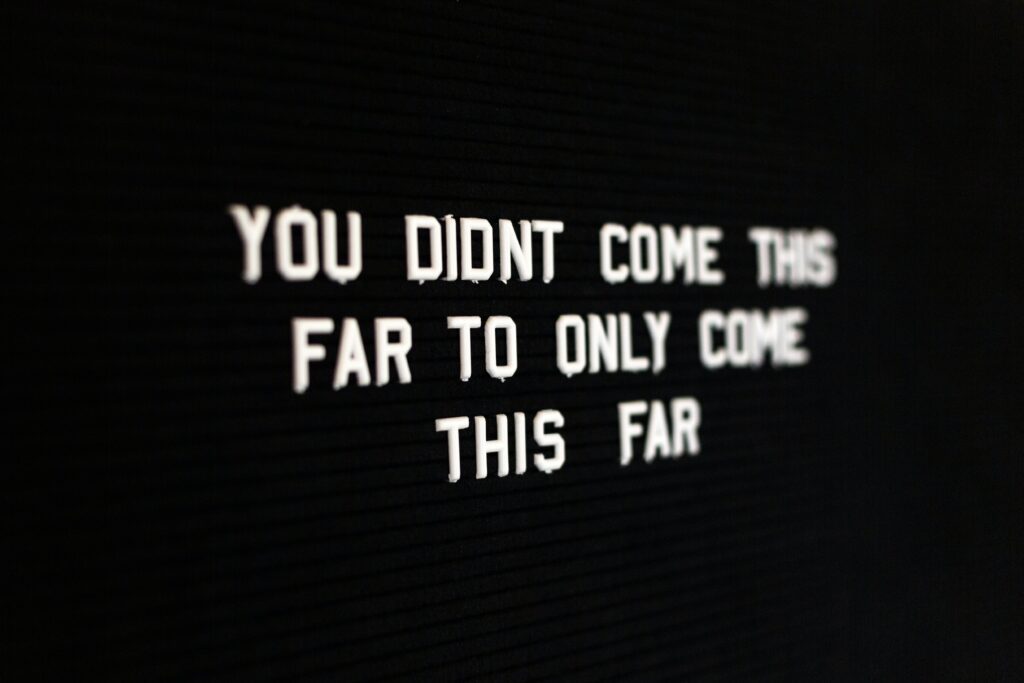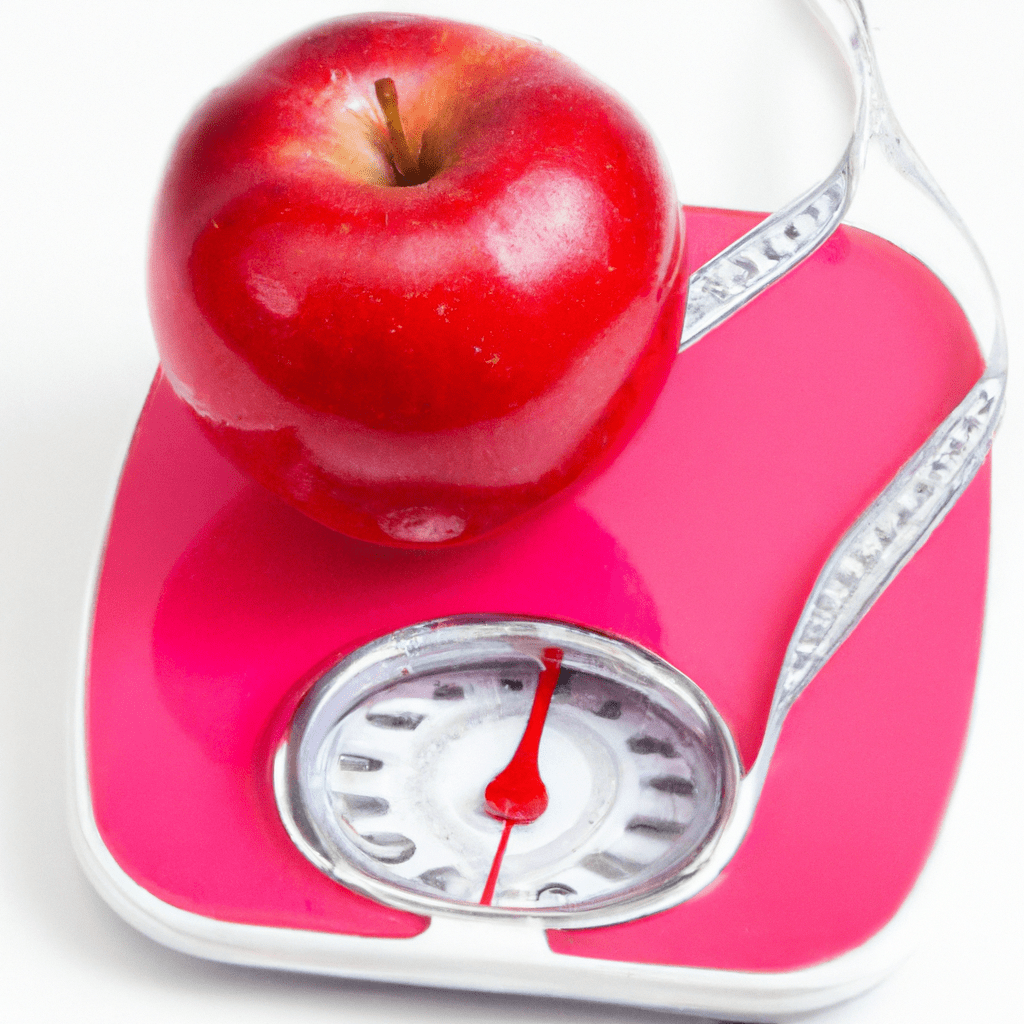



Ladies, we all know that maintaining a healthy weight becomes more challenging as we age, especially when we hit the golden fifties. But fret not, because, in this article, we’ve got some fantastic tips and tricks to help you successfully achieve your weight loss goals.
We understand that women over 50 face unique obstacles when it comes to shedding those extra pounds, so we’ve compiled a comprehensive guide tailored specifically to your needs.
From establishing a balanced diet to incorporating regular exercise, we’ll provide you with all the essential tools to not only lose weight but also improve your overall well-being. So let’s embark on this empowering journey together and reclaim your vitality!
Why weight loss is important for women over 50
Impact of weight on health
Maintaining a healthy weight becomes increasingly important as we age, especially for women over 50. Carrying excess weight can have a significant impact on our overall health and well-being. Studies have shown that being overweight or obese increases the risk of developing chronic conditions such as heart disease, type 2 diabetes, high blood pressure, and certain types of cancer.
Additionally, excess weight can put a strain on our joints and increase the risk of developing osteoarthritis. By shedding those extra pounds, we can reduce the risk of these health complications and improve our overall quality of life.
Benefits of weight loss
Losing weight can bring numerous benefits for women over 50. Firstly, it can improve our cardiovascular health by reducing the strain on the heart and lowering blood pressure and cholesterol levels. This, in turn, decreases the risk of heart disease and stroke.
Secondly, weight loss can improve our blood sugar control and insulin sensitivity, reducing the risk of developing type 2 diabetes. Furthermore, shedding excess weight can alleviate joint pain and improve mobility, making everyday activities easier and more enjoyable. Lastly, weight loss can boost our self-confidence and body image, leading to improved mental well-being.
Challenges for women over 50
Although weight loss is important for women over 50, it can also present unique challenges. As we age, our bodies undergo various changes that can make losing weight more difficult. Understanding and addressing these challenges is crucial for successful weight loss.
Hormonal fluctuations, slower metabolism, muscle loss, and decreased bone density are all factors that can affect our ability to shed pounds.
Additionally, menopause can bring its own set of challenges, including weight gain and increased difficulty in losing weight. Despite these obstacles, with the right strategies and support, women over 50 can achieve their weight loss goals and maintain a healthy lifestyle.
Understanding the aging process
Metabolism changes
One key factor that impacts weight loss for women over 50 is the changes in metabolism that occur with age. Our metabolism naturally slows down as we get older, which means that our bodies burn calories at a slower rate.
This can make it more challenging to create a calorie deficit, which is necessary for weight loss. To counteract this, it’s important to focus on maintaining or increasing our muscle mass through regular exercise, as muscle burns more calories than fat.
Additionally, consuming a balanced diet that supports a healthy metabolism can help mitigate the effects of a slower metabolism.
Hormonal fluctuations
Another aspect of the aging process that can affect weight loss is hormonal fluctuations. As we approach and go through menopause, our hormone levels, particularly estrogen, begin to decline.
This hormonal imbalance can contribute to weight gain, especially around the abdominal area. It can also make losing weight more difficult. Adopting a healthy lifestyle that includes regular exercise and a nutritious diet can help regulate hormone levels and mitigate the impact of hormonal fluctuations on weight management.
Muscle loss and bone density
Loss of muscle mass and decreased bone density are common age-related changes that can make weight loss more challenging. As we age, our bodies naturally lose muscle mass, which can result in a slower metabolism and decreased calorie burn.
Additionally, reduced bone density increases the risk of fractures and osteoporosis. Engaging in regular strength training exercises can help preserve and build muscle, boosting metabolism and creating a more favorable environment for weight loss. Adequate calcium and vitamin D intake are also crucial for maintaining strong bones and reducing the risk of fractures.
Creating a balanced and healthy diet
Caloric needs
To achieve weight loss, it’s important to establish a balanced and healthy diet that meets our caloric needs. The number of calories we require each day depends on factors such as age, weight, height, activity level, and metabolism.
As women over 50, our caloric needs may be slightly lower compared to when we were younger. However, it’s essential to avoid extreme calorie restriction, as it can lead to nutrient deficiencies and a slower metabolism. Consulting with a registered dietitian can help determine the appropriate caloric intake to support weight loss while ensuring we meet our nutritional needs.
Nutrient requirements
Maintaining a healthy and varied diet is crucial for women over 50. Our bodies require a wide range of nutrients to function optimally and support weight loss. A balanced diet should include plenty of fruits and vegetables, lean proteins, whole grains, and healthy fats.
Adequate intake of calcium, vitamin D, and B vitamins is also important for bone health, energy production, and overall well-being. Avoiding overly processed foods, sugary drinks, and excessive sodium intake is key to promoting weight loss and reducing the risk of chronic diseases.
Meal planning and portion control
Meal planning and portion control are effective strategies for weight loss. Planning our meals helps ensure we have nutritious options readily available and reduces the likelihood of making unhealthy food choices out of convenience.
Portion control involves being mindful of the amount of food we consume in each sitting. Using smaller plates and bowls and paying attention to hunger and fullness cues can help prevent overeating. Additionally, practicing mindful eating, which involves savoring each bite and eating slowly, can promote a greater sense of satisfaction with smaller portions.
Importance of regular exercise
Cardiovascular exercises
Engaging in regular cardiovascular exercises is crucial for weight loss and overall health. Activities such as walking, swimming, cycling, or dancing get our heart rate up and burn calories, contributing to a calorie deficit.
Aim for at least 150 minutes of moderate-intensity cardiovascular exercise per week, or 75 minutes of vigorous-intensity exercise if our health allows. Cardiovascular exercises also strengthen our heart and lungs, improve circulation, and boost mood and mental well-being.
Strength training
Strength training exercises are essential for women over 50, as they help preserve and build muscle mass, which can become depleted with age. Increased muscle mass not only improves our metabolism but also enhances overall strength and mobility.
Incorporate exercises that target major muscle groups, such as lifting weights, using resistance bands, or practicing bodyweight exercises. Aim for two to three sessions of strength training per week, ensuring adequate rest days for muscle recovery.
Flexibility and balance exercises


Flexibility and balance exercises are often overlooked but are equally important for overall fitness and injury prevention, especially as we age. Activities like yoga, Pilates, or tai chi can improve flexibility, joint mobility, and balance.
These exercises can help reduce the risk of falls and injuries, which can be particularly detrimental for women over 50. Additionally, these types of exercises promote relaxation and stress reduction, further supporting weight loss efforts.
Managing stress and emotional eating
Effects of stress on weight
Stress can have a significant impact on our weight, often leading to emotional eating and weight gain. When we’re stressed, our bodies release cortisol, a hormone that can increase appetite and cravings for high-calorie, comfort foods.
Stress can also disrupt our sleep patterns and lead to hormonal imbalances that contribute to weight gain, particularly around the abdominal area. Learning effective stress management techniques can help us better cope with stress and avoid turning to food as a source of comfort.
Healthy coping mechanisms
Developing healthy coping mechanisms is essential for managing stress and emotional eating. Engaging in activities that we enjoy, such as hobbies, listening to music, or practicing relaxation techniques like deep breathing or meditation, can help reduce stress levels.
Physical activity, such as walking or dancing, can also be an effective way to relieve stress and improve mood. Additionally, seeking support from loved ones or joining support groups can provide further emotional support during times of stress.
Avoiding emotional eating
Identifying and avoiding emotional eating is crucial for successful weight loss. Mindful eating techniques, such as paying attention to physical hunger and fullness cues, can help distinguish between true hunger and emotional cravings.
It’s important to find alternative ways to cope with emotions, such as talking to a friend or engaging in hobbies, rather than turning to food. By addressing emotional eating patterns, we can better manage stress and support our weight loss efforts.
Incorporating lifestyle changes
Getting adequate sleep
Getting adequate sleep is often overlooked but plays a crucial role in weight management, particularly for women over 50. Sleep deprivation can disrupt hormones that regulate hunger and satiety, leading to increased appetite and cravings.
It can also lower energy levels, making it more challenging to engage in physical activity. Aim for seven to nine hours of quality sleep each night and establish a consistent sleep routine. Creating a peaceful sleep environment, avoiding stimulating activities before bed, and practicing relaxation techniques can promote better sleep.
Reducing sedentary behavior
Reducing sedentary behavior is an important lifestyle change for weight loss and overall health. Sitting for prolonged periods has been associated with increased risks of obesity, cardiovascular disease, and premature death.
Finding ways to incorporate more movement throughout the day, such as taking regular breaks to stretch or walk, can help burn calories and improve overall fitness. Additionally, consider replacing sedentary activities, such as watching TV, with more active pursuits, such as gardening or engaging in hobbies.
Hydration and mindful eating


Staying hydrated and practicing mindful eating can support weight loss efforts. Drinking an adequate amount of water each day helps maintain optimal body function and can reduce feelings of hunger. Aim to drink at least eight cups of water daily and be mindful of our fluid intake.
Additionally, practicing mindful eating involves paying attention to the flavors, textures, and sensations of the food we’re eating. By slowing down and savoring each bite, we can better recognize when we’re full and avoid overeating.
Navigating menopause and weight gain
Understanding hormonal changes
Menopause brings about significant hormonal changes that can impact weight gain and weight loss efforts. As estrogen levels decline, our bodies tend to redistribute fat, often accumulating more around the abdomen.
This belly fat is not only aesthetically concerning but also increases the risk of developing chronic conditions such as heart disease and diabetes. Understanding these hormonal changes is crucial for developing effective weight loss strategies during menopause.
Managing menopausal symptoms
Managing menopausal symptoms can help support weight loss efforts. Hormone replacement therapy (HRT) and other medications can be effective in alleviating symptoms for some women.
However, lifestyle changes such as maintaining a healthy diet, engaging in regular physical activity, and managing stress can also help reduce the severity of symptoms. It’s important to consult with healthcare professionals to determine the most suitable approach for managing menopausal symptoms during the weight loss journey.
Strategies for weight maintenance
Weight loss during menopause can be more challenging compared to other stages of life. Therefore, it’s important to develop strategies for weight maintenance once desired weight loss goals have been achieved.
This may involve adjusting caloric intake to accommodate a slightly slower metabolism, continuing to engage in regular exercise to preserve muscle mass and metabolic function, and staying mindful of portion sizes and food choices. Ongoing support from healthcare professionals, as well as friends and family, can also be instrumental in maintaining weight loss during menopause.
Importance of social support
Joining weight loss groups
Joining weight loss groups or programs can be a great way to gain social support and accountability. These groups provide a supportive environment where individuals can share their experiences, struggles, and successes.
Group members can offer encouragement, motivation, and tips for navigating weight loss challenges. Additionally, community-based weight loss groups often provide educational resources and access to professionals who can help craft personalized weight loss plans.
Enlisting family and friends support
Enlisting the support of family and friends is crucial for successful weight loss. Loved ones can help create a supportive and encouraging environment at home.
They can assist with meal preparation, and exercise routines, and provide emotional support during challenging times. Sharing goals and progress with family and friends can also help us stay motivated and accountable along the weight loss journey.
Finding a weight loss buddy


Finding a weight loss buddy can be a game-changer for women over 50. Partnering with someone who shares similar goals and struggles can provide additional motivation and support.
A weight loss buddy can serve as a workout partner, a sounding board for challenges and successes, and a source of accountability. By embarking on the weight loss journey together, both individuals can increase their chances of long-term success.
Consulting with healthcare professionals
Medical check-ups and evaluations
Before embarking on any weight loss journey, it’s essential to consult with healthcare professionals. They can conduct medical check-ups and evaluations to assess our overall health, identify any underlying conditions that may affect weight loss, and provide tailored recommendations.
Healthcare professionals can help determine appropriate caloric intake, address specific nutritional needs, and advise on exercise plans that are safe and effective for women over 50.
Addressing underlying health conditions
Addressing underlying health conditions is crucial for successful weight loss. Conditions such as thyroid disorders, hormonal imbalances, or certain medications can affect our metabolism and make weight loss more challenging.
By identifying and addressing these underlying health conditions, healthcare professionals can provide targeted interventions and support weight loss efforts. Regular follow-ups with healthcare professionals ensure that our weight loss journey is on track and that any necessary adjustments can be made.
Customized weight loss plans
Healthcare professionals can help develop customized weight loss plans that take into account our unique needs and circumstances.
By considering factors such as medical history, lifestyle, preferences, and any existing health conditions, healthcare professionals can tailor a plan that is both safe and effective. Working with a professional ensures that we have access to evidence-based information, ongoing support, and guidance throughout our weight loss journey.
Celebrating progress and staying motivated
Setting realistic goals
Setting realistic goals is key to staying motivated and maintaining progress. It’s important to define specific, measurable, attainable, relevant, and time-bound (SMART) goals that align with our capabilities and resources.
By breaking our weight loss journey into smaller, achievable steps, we can experience a sense of accomplishment and stay motivated. Celebrating milestones along the way, such as fitting into a favorite outfit or reaching a certain weight, can provide an extra boost of motivation and reinforcement.
Tracking progress
Tracking progress is an effective way to stay accountable and monitor our weight loss journey. This can be done through various methods, such as keeping a food diary, using smartphone apps, or using wearable fitness trackers.
Tracking our daily food intake, exercise routines, and weight changes allows us to identify patterns, adjust our strategies if necessary, and evaluate our progress. Regularly reviewing and analyzing these records can serve as a helpful guide and source of motivation.
Rewarding achievements


Rewarding achievements, big and small, is essential for maintaining motivation. Treat ourselves to non-food rewards when reaching specific weight loss milestones or successfully following our healthy lifestyle habits.
This could be treating ourselves to a spa day, buying a new workout outfit, or enjoying a favorite hobby. By acknowledging and celebrating our achievements, we reinforce positive behaviors and create a positive association with our weight loss journey.
In conclusion, weight loss is important for women over 50 due to its impact on health and overall well-being. Understanding the aging process, including metabolic changes, hormonal fluctuations, muscle loss, and bone density, is essential for successful weight loss.
Creating a balanced and healthy diet, engaging in regular exercise, managing stress and emotional eating, incorporating lifestyle changes, navigating menopause and weight gain, seeking social support, consulting with healthcare professionals, and celebrating progress are all key components of a comprehensive weight loss approach.
By adopting these strategies and making gradual and sustainable changes, women over 50 can achieve their weight loss goals and enjoy a healthier and more fulfilling life.







